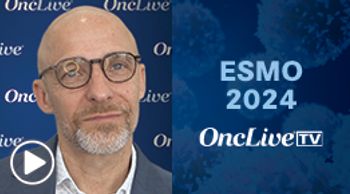
Eric Jonasch, MD, discusses preliminary findings from a trial investigating NKT-2152 in previously treated advanced clear cell renal cell carcinoma.

Your AI-Trained Oncology Knowledge Connection!


Eric Jonasch, MD, discusses preliminary findings from a trial investigating NKT-2152 in previously treated advanced clear cell renal cell carcinoma.

Consistent survival benefit was seen with consolidation durvalumab across subgroups in the ADRIATIC trial affirms its use as a standard of care in LS-SCLC.

Adjuvant durvalumab did not provide a disease-free survival advantage over placebo in patients with NSCLC across different PD-L1 subgroups.
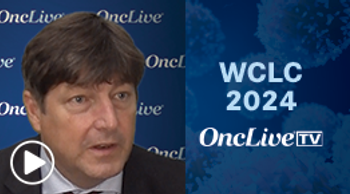
T. Jeroen N. Hiltermann, MD, discusses findings from phase 1/2 ARTEMIDE-01 trial.

Patients with EGFR-mutated NSCLC demonstrated reduced symptom progression when treated with amivantamab plus lazertinib vs osimertinib.

T-DXd showed clinical activity regarding responses and survival outcomes in patients with pretreated HER2-overexpressed metastatic non–small cell lung cancer.
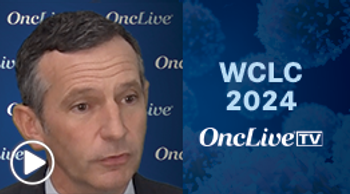
Benjamin Besse, MD, PhD, discusses findings from the phase 3 CARMEN-LC03 trial.

Tusamitamab ravtansine vs docetaxel was not significantly different regarding survival in patients with advanced nonsquamous non–small cell lung cancer.

Taletrectinib was safe and generated durable responses in both TKI-naive and -pretreated patients with ROS1-positive non–small cell lung cancer.

Neoadjuvant durvalumab plus chemotherapy and adjuvant durvalumab improves event-free survival in stage IIA-IIIB resectable non–small cell lung cancer vs. placebo.

Xiuning Le, MD, PhD, discusses updated findings from the phase 1/2 SOHO-01 trial.

The safety profile of adjuvant alectinib was tolerable and manageable in ALK-positive NSCLC.

Tarlatamab demonstrated durable responses and long-term tolerability in patients with previously treated small cell lung cancer.

Rilvegostomig induced responses with acceptable tolerability in patients with checkpoint inhibitor-naive, metastatic NSCLC.
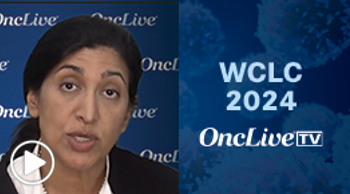
Natasha B. Leighl, MD, BSc, MMSc, discusses patient satisfaction and resource utilization results from the phase 3 PALOMA-3 study.
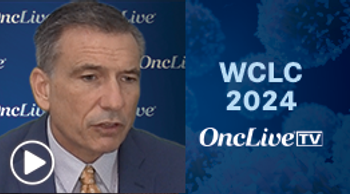
John V. Heymach, MD, PhD, discusses updated outcomes from the AEGEAN trial of perioperative durvalumab vs placebo in resectable non–small cell lung cancer.

Neoadjuvant pembrolizumab plus chemotherapy led to greater pathologic regression vs placebo plus chemotherapy in early-stage non–small cell lung cancer.
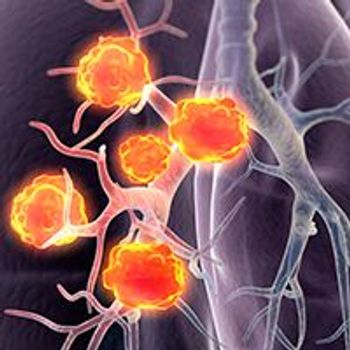
The combination of osimertinib/savolitinib demonstrated a significant improvement in ORR in de novo MET-aberrant, EGFR-mutant advanced NSCLC.

Treatment with firmonertinib was safe and effective for patients with EGFR P-loop and αC-helix compressing-mutated non–small cell lung cancer.
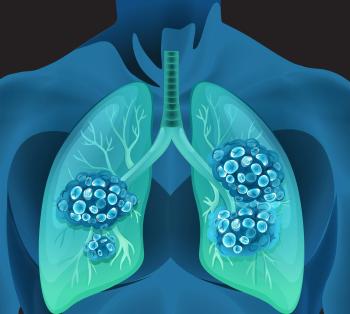
Treatment with aumolertinib led to an improvement in progression-free survival in unresectable, stage III, EGFR-mutated non–small cell lung cancer.

Zanubrutinib was associated with lower treatment switching rates vs acalabrutinib and ibrutinib in real-world chronic lymphocytic leukemia.

Zongertinib demonstrated clinically meaningful efficacy in previously treated HER2-mutated non–small cell lung cancer.

BAY 2927088 demonstrated durable response rates for patients with pretreated HER2-mutant non–small cell lung cancer.

Treatment with sacituzumab govitecan in the second-line setting yielded antitumor activity in patients with extensive-stage small cell lung cancer.
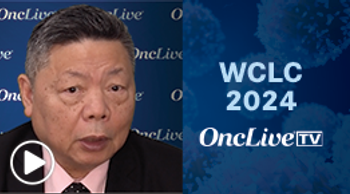
Yi-Long Wu, MD, PhD, discusses findings from the phase 3 SAFFRON-301 trial in patients with advanced or metastatic NSCLC.

Dato-DXd did not significantly improve overall survival compared with docetaxel for patients with non–small cell lung cancer.
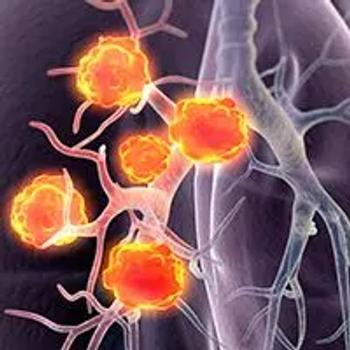
HS-20093 produced responses in extensive-stage small cell lung cancer after prior platinum-based chemotherapy with or without prior immunotherapy.

When compared with osimertinib, amivantamab plus lazertinib showed a trend toward favorable overall survival in patients with EGFR-mutant advanced NSCLC.

An exploratory analysis from the TROPION-Lung 01 study shows that positivity for TROP2 normalized membrane ratio can be predictive for improved efficacy in patients with non–small cell lung cancer treated with datopotamab deruxtecan.

Triparna Sen, PhD, discusses findings from an interim analysis of the phase 2 IDeate-Lung01 trial in patients with extensive-stage small cell lung cancer.